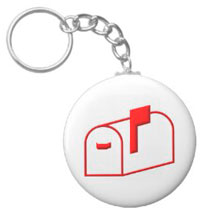mailbox key.
Many sellers forget to turnover the mailbox key. Replacing the lock on a secure mailbox can be a headache.
Re-key your front door and the mailbox. You do not know how many keys are floating around.

| Gazo: | How's about investing in condominiums? It's safe. |
| Rocky Balboa: | Condominiums? |
| Gazo: | Yeah, condominiums. |
| Rocky Balboa: | I never use 'em. |
| When you go to
your lawyer’s office to pick up the keys, make sure that
you get the FOB or key for the lobby door and garage, the keys to your
apartment, your locker room key and, also important, your mailbox key. Many sellers forget to turnover the mailbox key. Replacing the lock on a secure mailbox can be a headache. Re-key your front door and the mailbox. You do not know how many keys are floating around. |
 |